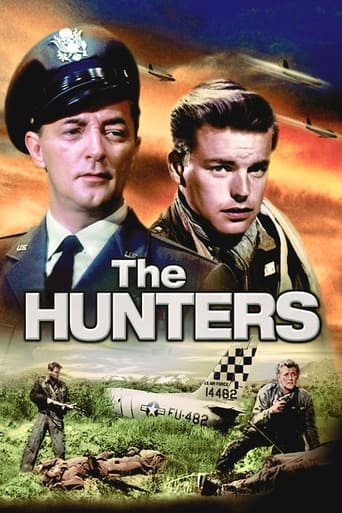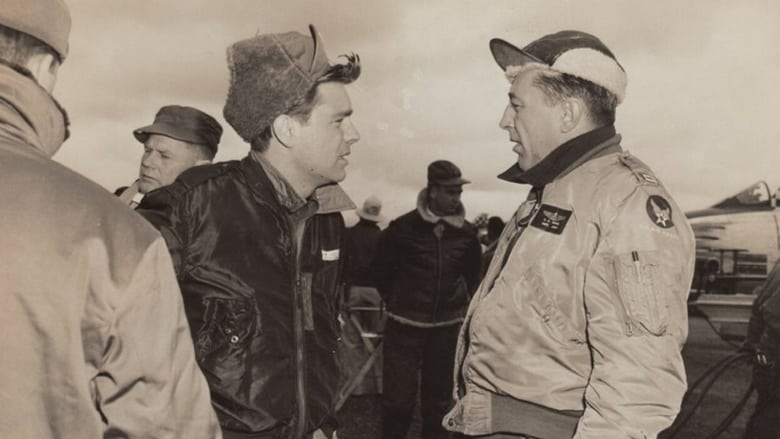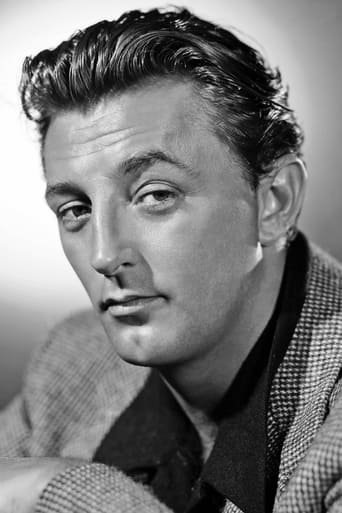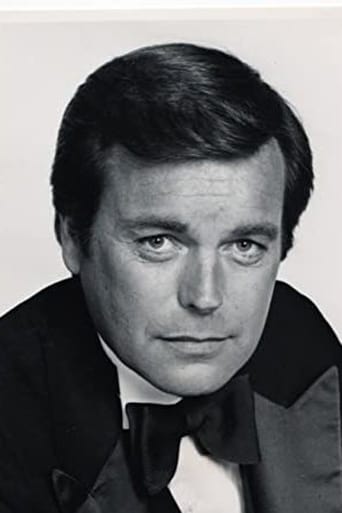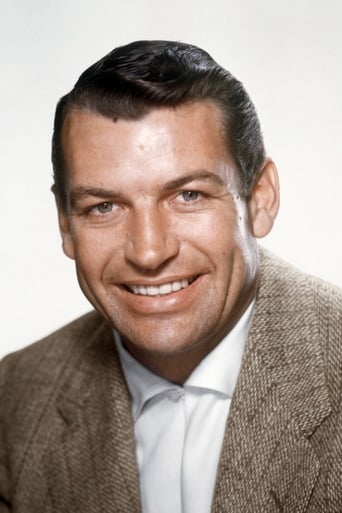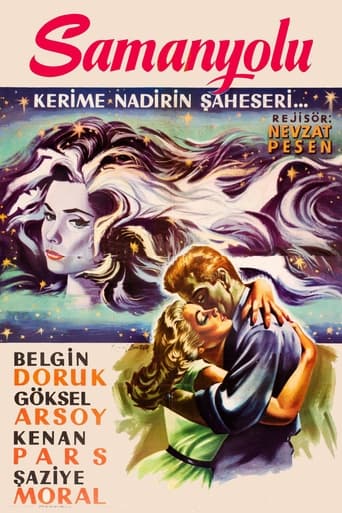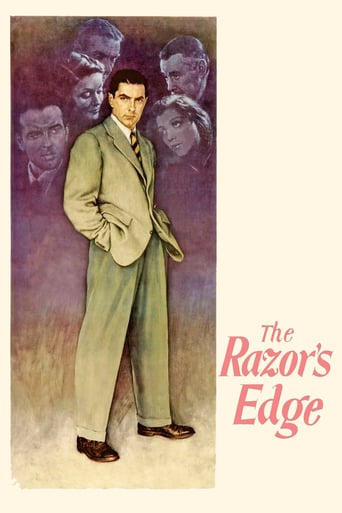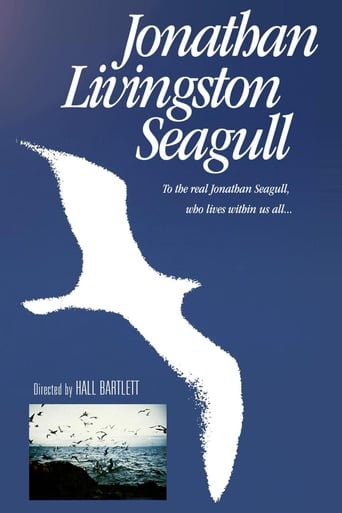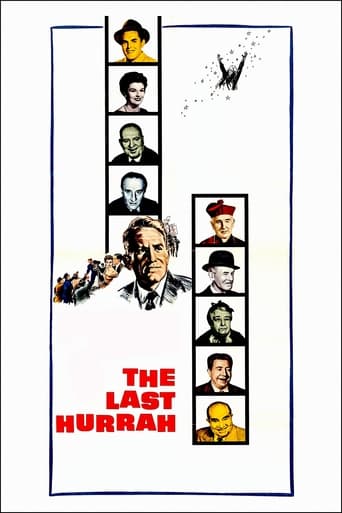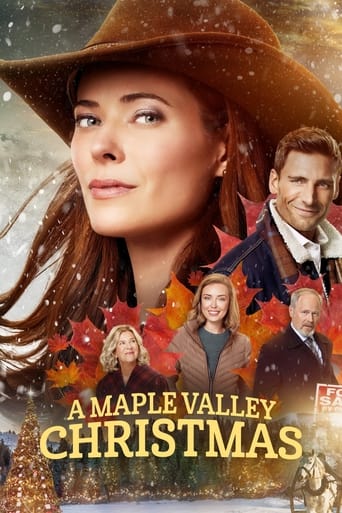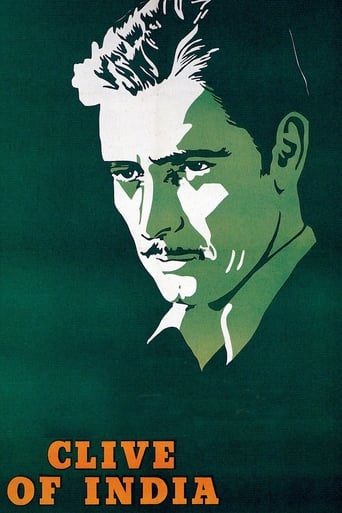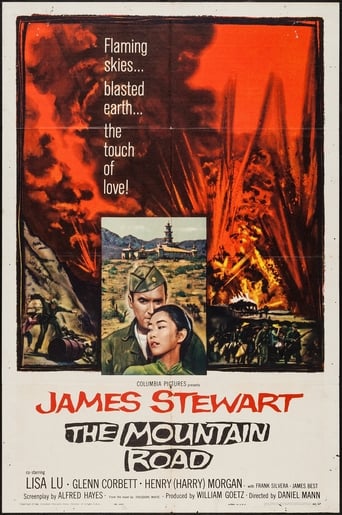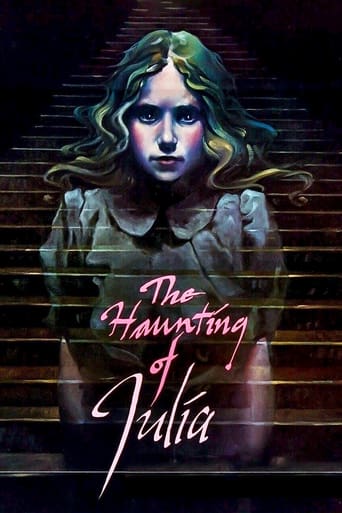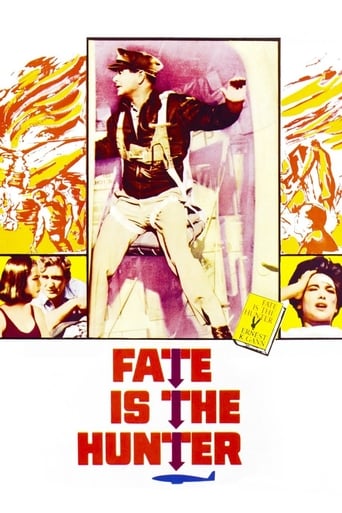The Hunters (1958)
With its electrifying flight sequences and high-powered cast, The Hunters is a mesmerizing film based on the best-selling novel by veteran fighter pilot James Salter. Set during the height of the Korean War, the story centers on Major Cleve Saville (Robert Mitchum), a master of the newly operational F-86 Sabre fighter jets. But adept as he is at flying, Saville¹s personal life takes a nosedive when he falls in love with his wingman¹s (Lee Philips) beautiful wife (May Britt). To make matters worse, Saville must cope with a loud-mouthed rookie (Robert Wagner) in a daring rescue mission that threatens all their lives in this well-crafted war drama.
Watch Trailer
Cast


Similar titles
Reviews
Great Film overall
Excellent but underrated film
Best movie ever!
Exactly the movie you think it is, but not the movie you want it to be.
THE HUNTERS 1958This 20th Century Fox Cinemascope production was director Dick Powell's follow up to the excellent 1957 war film, THE ENEMY BELOW. This one also stars Robert Mitchum in the lead role. This time however the action takes place in the air over Korea in 1952. Also in the cast are, Richard Egan, Lee Phillips, May Britt and Robert Wagner. This one starts at an Air base in Japan. Personal are off loaded from the States, then, transferred to their units in South Korea. Mitchum plays a World War Two veteran pilot with the nickname, "Ice Man". He is one cool and deadly pilot. This will be his first action flying jets (F-86) in combat. Commanding his unit is another WW2 vet, Richard Egan. Also in the squadron is Lee Phillips, who has an over fondness for beverages of the alcohol variety. Staying in Japan is the pretty wife of Phillips, May Britt.The men end up at a base in Korea and are assigned to fly patrols in "Mig Alley", an area just south of the border with Red China. This is where the various Red Air forces are trying to gain the upper hand. Each side is out to eliminate the other using ambush tactics and flying skill. At the moment, the Americans have the upper hand, but not without losses on their part. There are several Red pilots making a name for themselves, particularly one who goes by the handle, Casey Jones. Of course Phillips' wife, May Britt and Mitchum are soon locking lips every time Mitchum is in Tokyo. But, as much as Mitchum would like to step up the action, he can see that Britt is still in love with Phillips. He makes it his mission to whip the drunk into a first rate pilot. Now enters hotshot jet jockey, Robert Wagner fresh from the States. The kid can fly, and after a rough start with Mitchum, is soon knocking Reds out of the sky at a fast rate. While on a patrol over Mig Alley, there is a nasty round of combat between the Americans and the Reds. Phillips is shot up and takes to his chute. Mitchum gets some payback by finally getting the best of the Red Ace, Casey Jones. He then decides to see where Phillips had bailed out.Mitchum spots Phillips hanging from a tree, and decides to crash land his Sabre nearby. He feels obligated to help Phillips. There is soon a squad of North Korean infantry closing in. Said infantry are shot up by Robert Wagner who is then shot down by ground fire. Mitchum and Wagner are now hauling the badly wounded Phillips towards the United Nations lines. They tackle a couple of North Korean soldiers at a guard post and arm themselves with several burp guns. Then they run into a family of refugees also heading south. Another squad of North Korean types show and liquidate the civilians. Wagner and Mitch step up and pay the Red swine in kind.Taking the dead civilians cart, they load up Phillips and continue south. They are soon grabbed up by a U.N. unit of Greeks and sent back for medical attention. Phillips is patched up and will be sent back to the States. Britt and Mitchum say their goodbyes as Britt thanks Mitch for saving her husband.For the most part, the film works quite well with some nicely handled action sequences. The film however slows to a snail's pace every time Miss Britt is on screen. The love triangle bit is just not needed, or should have been trimmed by a good 15 minutes. Still, it is a great looking Cinemascope production with excellent color. Powell does good work as the helmsman, while four time, Oscar nominated, Charles G Clarke, handles the cinematography duties.May Britt was another of a string of Swedish actresses who were to be the next, Ingrid Bergman. The list would include, Marta Toren, Viveca Lindfors, Signe Hasso and Inger Stevens. None of them were.
If The Hunters were as in love with certain other aspects of film-making as much as it was with its jets and its coverage of its jets, we might have ended up with a more rounded film. As it happens, it's a perfectly able enough little number about the ties that bind amidst the pilots at the forefront of some rather important missions during wartime; a film which isn't quite on a par with something like Anthony Asquith's The Way to the Stars in its depiction of airbase-set life complete with the romances and complications that spawn as a result of this group of men, and often women, occupying the same space in and around a base, but suffices. By the time the film's final act has kicked in, we've pretty much gone with it; a somewhat maddening and out of place adventure sequence which stretches out to encompass ground action, gun fights and rescue missions formulating into revenge set pieces; sequences which attempt to derail most of what good preceded it, but loosely holds together.Robert Mitchum plays the lead, the film beginning with a triumphant burst of orchestral music during the opening credits as the name of each performer pops up on screen inviting a rousing reaction from that of whomever is watching. The credits play over that of an extended shot of a large plane, the first of many examples of the film lending ample time to shots of aircraft, as it rolls along a taxiway; Mitchum's flight major Cleve Saville eventually stepping off and treading foot on the soil of Japan, in this, 1952. The reason for his being there is more broadly linked to that of The Korean War, a stretch of warfare which ran from 1950 to 53; a conflict born out of the opposing Communist and Capitalist ideals which erupted post-Second World War, the film itself very much coming to represent a part of that war of words in terms of its propagandist tendencies.Saville is assigned to an Ameircan squadron utilising Allied Japanese bases in the country for raids on the Communist North Koreans who are fighting the South, he arrives with many-a medal insignia upon on his coat breast and the verbal confirmation of having operated out of the unforgiving conditions of London during World War II implies qualification. His assigning to 54th squadron, a "rough" group of men it seems are very much in need of Saville's expertise, sees him come into contact with an existing higher-up in that platoon named Carl Abbott (Philips) – his Norwegian, of all nationalities, wife Kristina, played by the Swedish born May Britt, arriving in tow. A further, brief history lesson on The Korean War uncovers the fact that it was, at least to my knowledge, the first conflict to have utilised aircraft not driven by propellers; the jet engines which overtook that of the old technology here used for the first time in warfare. The film is aware of this; produced nary many-a year post-conflict, and so with the innovation still somewhat fresh, it goes out of its way to encompass the jets as as much-a character or item of importance as anything else. Carl himself even complains at the difficulties faced in getting to grips with the things, citing headaches and such despite his problem with alcohol; they're new, and problematic – few have fought with such exposure to such things, whereas the film even has Saville pause to take in a proverbial 'view' upon arrival as they hare off overhead.Saville's integration with the squadron is often put aside for his interactions with Carl's wife, the aforementioned Kristina most call Kris. His altercations with Kris are born out her own concerns and rather wavering feelings towards her husband, for whom she is worried; their coming together eventually giving way to a mutual fondness not glossed over with a montage or what-not but allowed to develop naturally as they interact: an amusing incident highlighting changing feelings occurring when the proclaimed "Iceman of the sky" Saville looses his cool, calm and laid back persona whilst in a post office and in Kris' presence by dropping several items he was carrying.The whole thing builds to what we presume to be some sort of 'big battle'; a 'final showdown' in the skies between those dastardly Commies and the all-Americans, whom its already been suggested via a montage have superiority anyway, involving Saville and Abbott and a chief threat in the form of an unspecific North Korean pilot doing all sorts in a Soviet-made plane. When the time for that sequence comes, the proof in the pudding is in the film granting the Commies their own takeoff sequence, a blood red flume of smoke from a flair gun overbearing proceedings as each of the enemy leaves the base for the field of combat. As it happens, the dog-fight is just the starter to a more unpredictable main course; the cocktail of a man in Abbott on the edge going hand in hand with Saville, his ties to Kris and Abbott's knowledge of this on top of American pilot-hungry ground Commie troops looking to execute all manner of nastiness on anybody even remotely not attuned to their cause disparately combining and working at once. Ultimately a bit of a propaganda piece, a slice of unabashed flag waving which enjoys the company of its stars and the latest and greatest in innovation of the United States armed forces, The Hunters is a wobbly effort but dimly enjoyable in its own right.
The Hunters (1958)Planes, Yes, And a Battle Between Two WarsThe provocatively titled The Hunters is mostly routine, patriotic stuff with some small twists of plot and motivation to keep it interesting. The general tone and the general outcome are givens. There are two halves to the movie. The air-to-air combat, which is exciting if you like that kind of action, and well filmed, and a human plot which lopes along with little consequence. This human half is is filmed so well, you can watch it all and soak up the sets and framing and the gently moving camera scene after scene. It's a good example of a CinemaScope production using the wide wide look, edge to edge. The most beautiful sections are set in civilian Japan, which is an interesting emphasis for a Korean War movie. There are some pretty night shots that have great atmosphere, filled more with charcoal colors than inky black shadows. The brighter interior sets are really stunning in their horizontal sweep and photographed with a kind of professionalism that's easy to take for granted--conservative, beautiful camera-work. Add a little moment here and there, like the longing in the woman's look after she moves to the door 14 minutes in, and you have a hint of missed opportunity. And I don't just mean Mitchum's. I know other people will like the dogfights and military stuff, and if you do, check this out. It's not at all corny or clumsy, but it all looks too much same to me, even if I worry a little about who will get shot down next. A little. Notice how the movie gets far more compelling in the last half hour of fighting on the ground, looking more like WWII. And still filmed beautifully.Significance? Actually, yes. One serious theme throughout is weighing the small Korean Conflict against World War II. Mitchum, a grave, no-nonsense veteran from the earlier war, is not only older and more experienced, he has the credentials of the real thing. He's fighting in Korea because it's the only war going on, and he's a soldier. He has the nickname the Ice Man, but the name feels patched on so the movie can show he really has a heart underneath his steely reserve. It's a paradigm for a great kind of man, I think, and an attractive one even when oversimplified. By contrast, the young pilots are casual and wisecracking, lacking discipline and any sense of commitment, mostly because their war doesn't demand it. One of them (played by Robert Wagner) is so cocky we know he's covering his cowardice. Another is an alcoholic, and his beautiful, lonely wife gets a little quality time with Mitchum, who isn't above sneaking something past one of his young colleagues (she's the little known Swedish actress, May Britt, who later married Sammy Davis, Jr.). Anyway, Mitchum makes good in the end. They all do, those still alive.Underlying all this is the way the Korean War in its dubiousness made these men less substantial, somehow, compared to the men formed by WWII. It's a kind of Generation X syndrome, and it feels real, these Korean War Americans driven mostly by indifference, ultimately distorted by the weird fact that they needed something bigger and more meaningful to react to. It's only after some thinking about it do you realize that Mitchum's strength of character might not be a result of WWII, after all, but of some innate sense of being a fighter. He's not looking for a cause, but for a war. In this movie, he gets a little of both.
Robert Mitchum first served in Korea in 1952. That time he was in the army in Tay Garnett's One Minute To Zero and Richard Egan was also along for the ride. Six years later he was back as a jet pilot in Dick Powell's The Hunters and Richard Egan was also along for the ride. In both movies Mitchum was a career serviceman who'd served in WWII and in each he was give a ho-hum love interest, respectively Ann Blyth and Mai Britt. 'Zero' is now remembered, if at all, for the great 'standard' that emerged from it, Victor Young's When I Fall In Love which, like Laura, was heard only instrumentally in the film. Dick Powell, something of a joke as a crooner, graduated to straight acting and then to directing and worked with Mitchum memorably on The Enemy Below. Here he turns in a decent enough melodrama with flying sequences.

